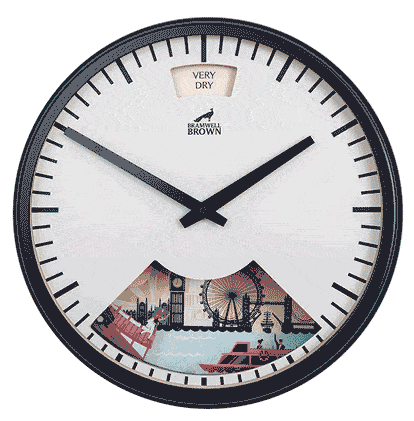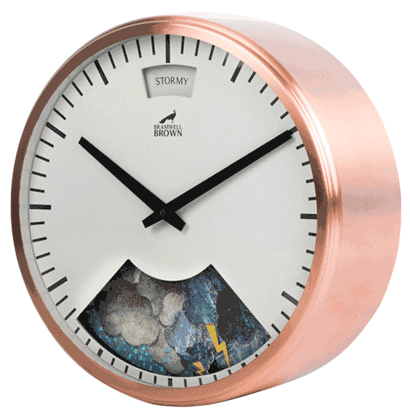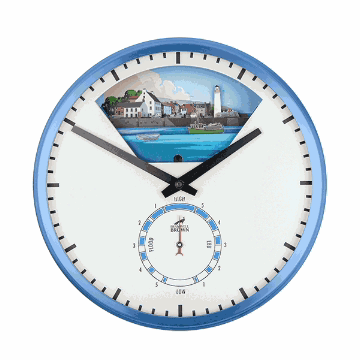The Bramwell Brown Blog
Six Weather Forecasting Legends of all time!
Our Top Six Weather Forecasting Legends of all time!
by Rob & Sarah
As you know at Bramwell Brown we are weather obsessed and it’s not uncommon for us to discuss our favourite weather forecasters! So much so that we decided to do our research and write a blog about it!
1. David King
Famous for his weather forecasts without using any technology, King is not a trained scientist or academic but describes himself as a keen amateur climatologist. He learnt to read the sky and clouds for weather patterns when he was on the ‘beat’ in the police force. Since he retired King honed his traditional methods of natural weather forecasting by ‘reading’ plants, animals and the British countryside to forecast upcoming weather patterns. Amazingly his slightly mad forecasts are very accurate too – he famously correctly forecast rain on the Queen’s Jubilee! We think David is just brilliant!

2. James Martin Stagg
A group captain in the Royal Air Force and Chief Meteorological officer at the Supreme Headquarters Allied Expeditionary Force, Stagg helped convince allied leaders to postpone the D Day invasion by one day due to inclement weather conditions. Other weather forecasters disagreed, thinking the weather on June 5, the original date for the invasion, was good enough. The forecast for northwest France on June 6, 1944 stands as history's most important weather forecast. The UK Met Office says the invasion took place during a generally stormy period, with June 6 constituting a brief window of opportunity, albeit not a crystal clear, calm day. James Martin Stagg – we salute you!

3. John Locke
Another historic figure that you might not have heard of, but Locke has contributed to Britain’s meterological past by keeping a weather diary for over 40 years. Born in 1632 Locke studied medicine at Oxford and later became a highly influential philosopher. He recorded multiple meterological variables such as temperature, humidity, atmospheric pressure, wind direction and strength and although now underestimated, these constituted the first meteorological reports of Great Britain.
4. Rear Admiral Sir Francis Beaufort
Born in Navan in Ireland, Beaufort created the wind force scale in 1806. This was a scale ranging from calm (0) up to storm (13) in which wind strength was correlated with the amount of sail a full-rigged ship would carry appropriate to the wind conditions. It was first used officially by Robert Fitzroy in 1831 and then adopted by the British Admiralty in 1838. When sail gave way to steam the scale was modified by defining levels on it in terms of the state of the sea or, following George Simpson, wind speed.

5. Michael Fish
Who hasn't heard of Michael Fish? Now semi retired, Fish is Britain’s (and possibly the world’s) longest serving TV Weather forecaster. He joined the Met Office in 1962 and will always be remembered for this mis-reported Hurricane forecast in October 1987. With 44 years of Weather TV and radio broadcasting under his belt – he stands out to us as a true Weather Forecasting Legend!

6. Carol Kirkwood
Last but definitely not least is Carol Kirkwood. Kirkwood is the main weather presenter on BBC Breakfast and gets up at 2.45am every day to present the weather for the nation! However she wasn’t always a weather presenter, she started off as a TV presenter and retrained under guidance of the BBC at the Met Office, becoming the ultimate Queen of the Weather in 1998. We don’t know about you but we always start out the day with Carol’s forecast!

So what do you think of our Top 6 – have we left any of your favourites out? We’d love to know your thoughts? Who’s your top Weather Forecasting Legend (apart from our clocks of course!)





